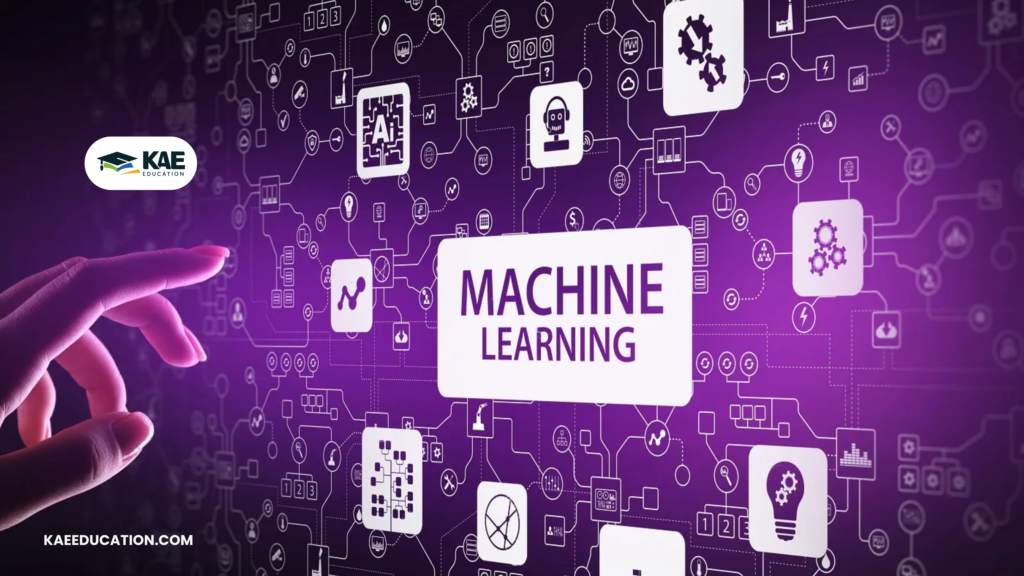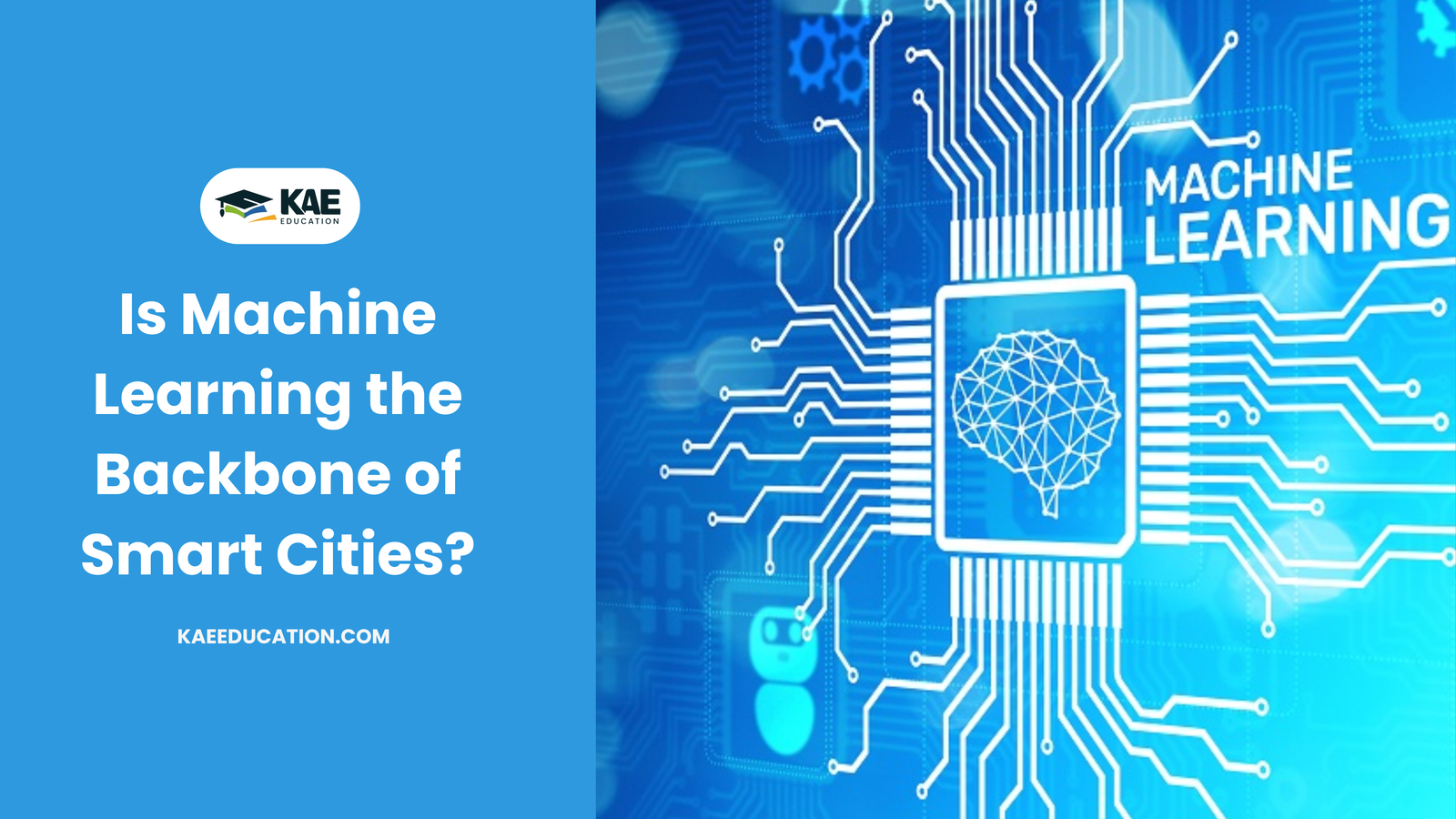Is Machine Learning the Backbone of Smart Cities?
Smart cities represent the future of urban living, where technology seamlessly integrates with daily life to enhance efficiency, sustainability, and quality of life. At the heart of this transformation is Machine learning, a key enabler that drives intelligent decision-making and automation. As we move into 2024 and beyond, Machine learning is becoming indispensable in shaping smarter cities.
What is Machine Learning’s Role in Smart Cities?
A kind of Artificial intelligence (AI) called Machine learning (ML) allows systems to learn from data, spot trends, and make judgments with little assistance from Humans. For smart cities, Machine learning acts as the backbone, powering real-time insights, predictive analytics, and automated responses to urban challenges.
Applications of Artificial Intelligence (AI) in Smart Cities
(1) Traffic and Transportation Management
(i) Predictive Traffic Control:-
Analyzes traffic patterns to optimize signals and reduce congestion.
(ii) Smart Public Transport:-
Artificial Intelligence (AI) models predict demand and optimize routes.
(iii) Autonomous Vehicles:–
Powers self-driving cars to improve safety and efficiency.
(2) Energy Optimization
(i) Smart Grids:–
Artificial Intelligence (AI) forecasts energy demand and ensures efficient distribution.
(ii) Energy Savings:-
Identifies energy wastage and suggests optimizations for buildings.
(3) Waste Management
(i) Route Optimization:-
Determines the most efficient garbage collection routes.
(ii) Waste Sorting:-
AI-powered systems separate recyclables from non-recyclables.
(4) Public Safety
(i) Crime Prediction:-
Analyzes data to predict and prevent criminal activities.
(ii) Disaster Response:-
Helps in planning and executing disaster mitigation strategies.
(5) Environmental Monitoring
(i) Air Quality Analysis:-
ML tracks pollution levels and predicts future trends.
(ii) Climate Resilience:-
Assesses climate data to design sustainable urban systems.

Future of Machine Learning in Smart Cities (2024-2025)
The role of Artificial Intelligence (AI) in smart cities is set to expand, driven by advancements in technology and urbanization. Key future trends include:
(i) Integration with 5G Networks:-
Faster and more reliable data transfer for real-time ML applications.
(ii) IoT Expansion:-
More sensors and connected devices providing rich data for ML analysis.
(iii) Decentralized ML Models:-
Edge computing will enable ML models to process data locally, reducing latency.
(iv) Enhanced Citizen Engagement:-
ML-powered apps will provide personalized recommendations for city services.
(v) Focus on Sustainability:-
Artificial Intelligence (AI) will drive green initiatives, optimizing resources like water and energy.
With these developments, smart cities will become more adaptive, efficient, and resilient to future challenges.
Benefits of Machine Learning in Smart Cities
(i) Real-Time Decision-Making:-
ML processes data instantly, enabling quick and informed decisions.
(ii) Cost Efficiency:-
Automates repetitive operations to lower operating costs.
(iii) Improved Citizen Experience:-
Personalizes services like public transport and Healthcare.
(iv) Sustainability:-
Supports eco-friendly practices and resource optimization.
Challenges of Machine Learning in Smart Cities
(1) Data Privacy Concerns
(i) Collecting and analyzing large datasets raises privacy issues.
(ii) Solution: Implement strict data protection policies and anonymization techniques.
(2) Infrastructure Limitations
(i) Not all cities have the infrastructure to support ML technologies.
(ii) Solution: Focus on scalable and cost-effective technology investments.
(3) Skill Gaps
(i) A shortage of skilled professionals in Artificial Intelligence (AI) can hinder progress.
(ii) Solution: Promote education and training programs in AI and ML.
Conclusion: Machine Learning as the Smart Cities Backbone
As cities grow and urban challenges intensify, Artificial Intelligence (AI) is emerging as the backbone of smart city development. By harnessing the power of real-time analytics, predictive insights, and automation, Machine learning is driving the evolution of urban living.
Looking ahead to 2024 and beyond, the integration of Artificial Intelligence (AI) with emerging technologies like IoT, 5G, and blockchain will unlock new possibilities, making cities smarter, greener, and more livable.
The future of smart cities is bright, and Machine learning is the engine propelling them toward a more intelligent, sustainable tomorrow. Are you ready for the transformation?
FAQs About Machine Learning in Smart Cities
AI analyzes real-time data to optimize urban services, reduce costs, and enhance citizen satisfaction.
Traffic management, energy optimization, waste management, public safety, and environmental monitoring.
AI predicts crime patterns, improves surveillance, and assists in disaster response planning.
Integration with 5G, IoT expansion, edge computing, and sustainability-focused ML applications.
Data privacy, infrastructure gaps, and a shortage of skilled professionals.
By optimizing energy and water usage, reducing waste, and improving resource allocation.
Yes, Machine learning/AI is essential for enabling real-time decision-making and creating adaptive, efficient urban systems.

